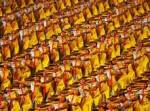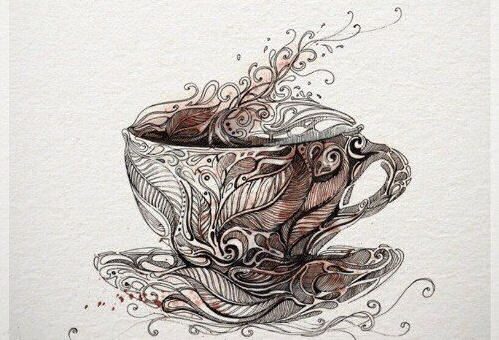 As I write this, we’ve just finished the Sochi Winter Olympics (2014). The lead up to the event was one of concern about possible Chechnyan terrorists. As the journalists and athletes arrived, the focus shifted to unfinished hotel rooms, water which should not be ingested or even used externally, and dangerous course conditions. The magnitude of those problems even prompted late night host Jimmy Kimmel to put out a hoax about athletes sighting a wolf in their housing. By the time the flame was extinguished, those concerns faded, the athletes were celebrated and everyone went home happy, with of course the mandatory possibility of corruption in the ice skating judging.
As I write this, we’ve just finished the Sochi Winter Olympics (2014). The lead up to the event was one of concern about possible Chechnyan terrorists. As the journalists and athletes arrived, the focus shifted to unfinished hotel rooms, water which should not be ingested or even used externally, and dangerous course conditions. The magnitude of those problems even prompted late night host Jimmy Kimmel to put out a hoax about athletes sighting a wolf in their housing. By the time the flame was extinguished, those concerns faded, the athletes were celebrated and everyone went home happy, with of course the mandatory possibility of corruption in the ice skating judging.
Beijing’s summer Olympics in 2008 had similar issues. The biggest were the constant reports of pollution, with news feeds featuring vistas barely visible through the smog. The government had closed down some manufacturing plants prior to the arrival of the world, but it did not produce the clear skies I’m sure everyone would have liked to have seen.
One of the images from the Beijing Olympics which stuck in my mind was the cleanup of algae in the harbor so the boating events could take place. Interestingly, expensive racing boats don’t do well in sludge.
The hundreds of people scooping up green goop was a stark juxtapose to the pomp of the opening and closing ceremonies, where Beijing proudly announced to the world, “Yeah, we got this. Did you want it supersized?”
 And what do drumming thousands and scooping hundreds have to do with my dishwasher which isn’t working? Possibly nothing, possibly everything.
And what do drumming thousands and scooping hundreds have to do with my dishwasher which isn’t working? Possibly nothing, possibly everything.
The green goop is a maybe good, maybe bad byproduct of using phosphates in agriculture and cleaning solutions. Phosphates can do several things really well. They can bind greases, allowing dishes to be cleaned and they can fertilize plants, making them grow bigger and faster.
In the United States and Canada, phosphates have been banned in dishwashing and laundry detergents since 1993 because of a study done in Washington State, which by some accounts has been largely discredited. The study concluded phosphates in home usage were causing waste water to grow algae, which used all the oxygen in the water, killing fish. Manufacturers were only too happy to comply with the ban, as it allowed them a larger profit margin; replacing an expensive ingredient with bulk fillers.
Since 1993, a number of substitutes have been tried, the latest being Oxyclean. While successful to a degree, none have had the grease cutting and binding power of phosphates. They are not banned in China, where your low water level dishwasher was probably assembled, if not also designed. The conditions for optimal operation differ in the two countries in China’s ability to remove grease from the dishwasher, along with the waste water.
Since you’ve owned your machine, grease has been gradually accumulating on floaters, gumming up pumps and taking residence in waste tubes. Any one of these conditions, left untreated, can gradually cause your machine to throw errors and cease functioning. Think that’s not happening? Not only in your machine, but in your plumbing, septic tank or sewer lines. In 2013, London’s public works found a 15 ton”fatberg,” in its sewers, the largest ever seen. Because cooking oil is a main component of these blockages, removing the ability to bind grease is affecting not only the individual household, but cities’ infrastructures as well.
And back to the dishwasher, because I know you’re itching to know how to fix it for under $20. First the bad news. If you have an actual broken part, this will not help. If you just *think* it’s broken, try this. Commercially, phosphates have been allowed to continue in usage. Restaurant cleaning formulas, commercial laundry, painters, construction all use phosphates to remove grime and residue. You can even buy phosphates at your local home improvement store to clean your deck, prepare for painting, etc.
- Go to your local paint supply store, home improvement outlet, or online and look for Trisodium Phosphate or TSP
.
- When adding detergent to your dishwasher, add 1/2 tsp of TSP as well.
- Make sure your water is hot in the pipes before running the dishwasher — heat helps liquefy grease, to bind more easily with the phosphates.
- Be patient. It took you several years of grease to get your appliance in this state; it will take several cycles to get it clean.
I have been adding TSP to my dishwasher (an LG which was throwing E1 error codes) for about a month. Every so occasionally it will still stop, but in general I am able to run a cycle, the dishes are cleaner and the machinery operates at the same quiet level I remember from its installation and earliest days of use.
If you have a septic tank, the nutrients in TSP will help grow the enzymes which break down waste. Since the prohibition on TSP in dishwashing detergent, septic tanks have had to be pumped 3-4 times more frequently. That cost savings will more than offset the few dollars to add TSP for cleaner dishes and laundry.
An interesting side note to my research. Apparently commercial water treatment systems like the one your town probably uses, relied on phosphates to grow algae to eat the bad stuff in the water, before releasing it back into the environment. Now the facilities are having to ADD phosphates to accomplish the same treatment goals.
Did you know that TSP is highly biodegradable and that algae can be either dried and burned as fuel, or composted and returned to the soil? Feel good about fixing that machine!


